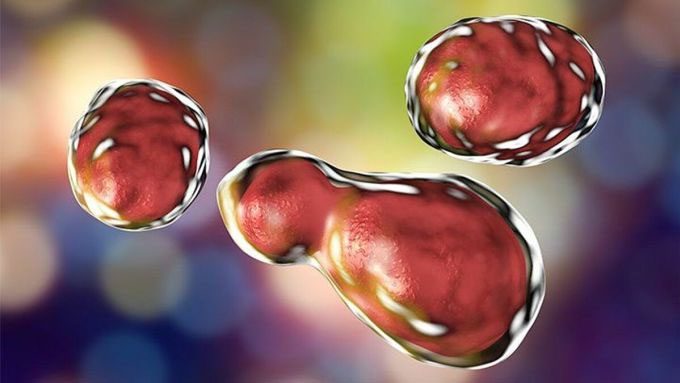Fungal Meningitis – A Disease Emerging After Cosmetic Surgery That is Currently Spreading in the U.S. and Mexico – Can Cause Fever, Headaches, and Even Death.
How Dangerous is Fungal Meningitis?
Fungal meningitis is an infection that affects the fluid and the three membranes surrounding the brain and spinal cord. According to the Centers for Disease Control and Prevention (CDC) in the United States, fungal meningitis occurs when a person is infected with fungi that spread to the brain or spinal cord. Signs and symptoms may appear weeks after the infection, typically including fever, headache, nausea, vomiting, stiff neck, sensitivity to light, and altered mental state.

Illustration of fungal spores causing meningitis. (Photo: Thickstock).
The CDC indicates that there are many types of fungi that are very small and difficult to see with the naked eye, making it easy for people to inhale or ingest these tiny spores. Fungal meningitis is not transmitted from person to person. Although rare, outbreaks of fungal meningitis often occur after medical procedures and surgeries.
Diagnosis and Treatment of Fungal Meningitis
To diagnose fungal meningitis, a doctor will take a blood sample or cerebrospinal fluid to test for fungal spores. According to the CDC, if the test result is positive, the patient will be given high-dose intravenous antifungal medications, such as amphotericin B – which inhibits the growth of fungi. Following this, the patient will be prescribed oral medications like itraconazole or fluconazole.
Currently, there are no specific recommendations regarding the duration of medication use. Most doctors will prescribe based on the patient’s immune system. For example, individuals with underlying conditions that weaken the body’s ability to fight infections, such as HIV/AIDS, will require longer treatment.
Can Fungal Meningitis be Fatal?
Currently, there is no data on the number of annual deaths due to fungal meningitis. However, public health experts state that the disease can be fatal if not diagnosed and treated promptly.
Currently, there is no vaccine for fungal meningitis. The CDC recommends several preventive measures, such as avoiding dusty areas, refraining from activities and close contact with dirt without protective measures like masks, and cleaning skin wounds with warm water and soap to prevent infection.


















































